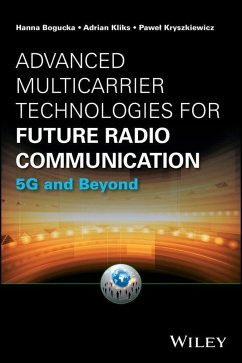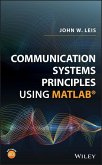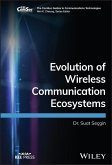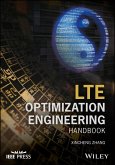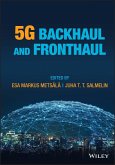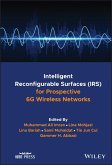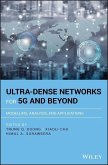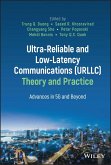A practical review of state-of-the-art non-contiguous multicarrier technologies that are revolutionizing how data is transmitted, received, and processed This book addresses the advantages and the limitations of modern multicarrier technologies and how to meet the challenges they pose using non-contiguous multicarrier technologies and novel algorithms that enhance spectral efficiency, interference robustness, and reception performance. It explores techniques using non-contiguous subcarriers which allow for flexible spectrum aggregation while achieving high spectral efficiency and flexible transmission and reception at lower OSI layers. These include non-contiguous orthogonal frequency division multiplexing (NC-OFDM), its enhanced version, non-contiguous filter-bank-based multicarrier (NC-FBMC), and generalized multicarrier. Following an overview of current multicarrier technologies for radio communication, the authors examine particular properties of these technologies that allow for more efficient usage within key directions of 5G. They examine the principles of NC-OFDM and discuss efficient transmitter and receiver design. They present the principles of FBMC modulation and discuss key challenges for FBMC communications while comparing performance results with traditional OFDM. They move on from there to a fascinating discussion of GMC modulation within which they clearly demonstrate how that technology encompasses all of the advantages of previously discussed techniques, as well as all imaginable multi- and single-carrier waveforms. * Addresses the problems and limitations of current multicarrier technologies (OFDM) * Describes innovative techniques using non-contiguous multicarrier waveforms as well as filter-band based and generalized multicarrier waveforms * Provides a thorough review of the practical limitations and solutions for evolving and breakthrough 5G communication technologies * Explores the future outlook for non-contiguous multicarrier technologies as regards their greater industrial realization, hardware practicality, and other challenges Advanced Multicarrier Technologies for Future Radio Communication: 5G and Beyondis an indispensable working resource fortelecommunication engineers, researchers and academics, as well as graduate and post-graduate students of telecommunications. At the same time, it provides a fascinating look at the shape of things to come for telecommunication industry executives, telecom operators, regulators, policy makers, and economists.
Dieser Download kann aus rechtlichen Gründen nur mit Rechnungsadresse in A, B, BG, CY, CZ, D, DK, EW, E, FIN, F, GR, HR, H, IRL, I, LT, L, LR, M, NL, PL, P, R, S, SLO, SK ausgeliefert werden.

